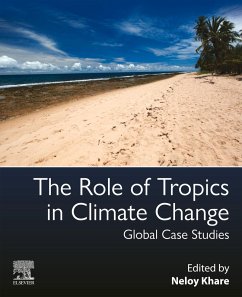
Environmental Health Behavior (eBook, ePUB)
Concepts, Determinants, and Impacts
Redaktion: Virgolino, Ana; Santos, Ricardo R.; Santos, Osvaldo

PAYBACK Punkte
48 °P sammeln!
The unique biological capacities of humankind enabled the emergence of organized societies and sophisticated and globalized cultures. The progressive and universal recognition of science and technology as bulwarks of our species' survival, longevity, and quality of life made individual and organizational behaviors the main drivers of current (and future) human and planetary health standards.Environmental Health Behavior: Concepts, Determinants, and Impacts, integrates two different but intertwined fields, environmental health sciences and human behavior sciences, identifying and systematizing ...
The unique biological capacities of humankind enabled the emergence of organized societies and sophisticated and globalized cultures. The progressive and universal recognition of science and technology as bulwarks of our species' survival, longevity, and quality of life made individual and organizational behaviors the main drivers of current (and future) human and planetary health standards.Environmental Health Behavior: Concepts, Determinants, and Impacts, integrates two different but intertwined fields, environmental health sciences and human behavior sciences, identifying and systematizing current knowledge about human behaviors and habits, and addressing the challenge of environmental sustainability. The book takes the reader through a conceptual framework for environmental health behavior (EHB) as an emerging field of public and environmental health, positioning behavior change as the main challenge for the success of promoting sustainable human and planetary health. Its reading promotes insight into the environmental impacts of human demands and behavior, and, vice-versa, about the impacts of the environment on human behavior change. Moreover, different evidence-based strategies to promote EHB change are identified as practical tools for stakeholders involved in the challenge of promoting intergenerational well-being in balanced and sustainable human-produced and natural systems. - Provides easily accessible integrated data supported by practical and illustrative examples of environmental health behaviors - Offers a multidisciplinary collaborative approach to EHB by experts from different fields - health sciences, environmental sciences, psychology, sociology, among others - Delivers information on how to promote EHB change in different settings
Dieser Download kann aus rechtlichen Gründen nur mit Rechnungsadresse in A, B, BG, CY, CZ, D, DK, EW, E, FIN, F, GR, HR, H, IRL, I, LT, L, LR, M, NL, PL, P, R, S, SLO, SK ausgeliefert werden.












